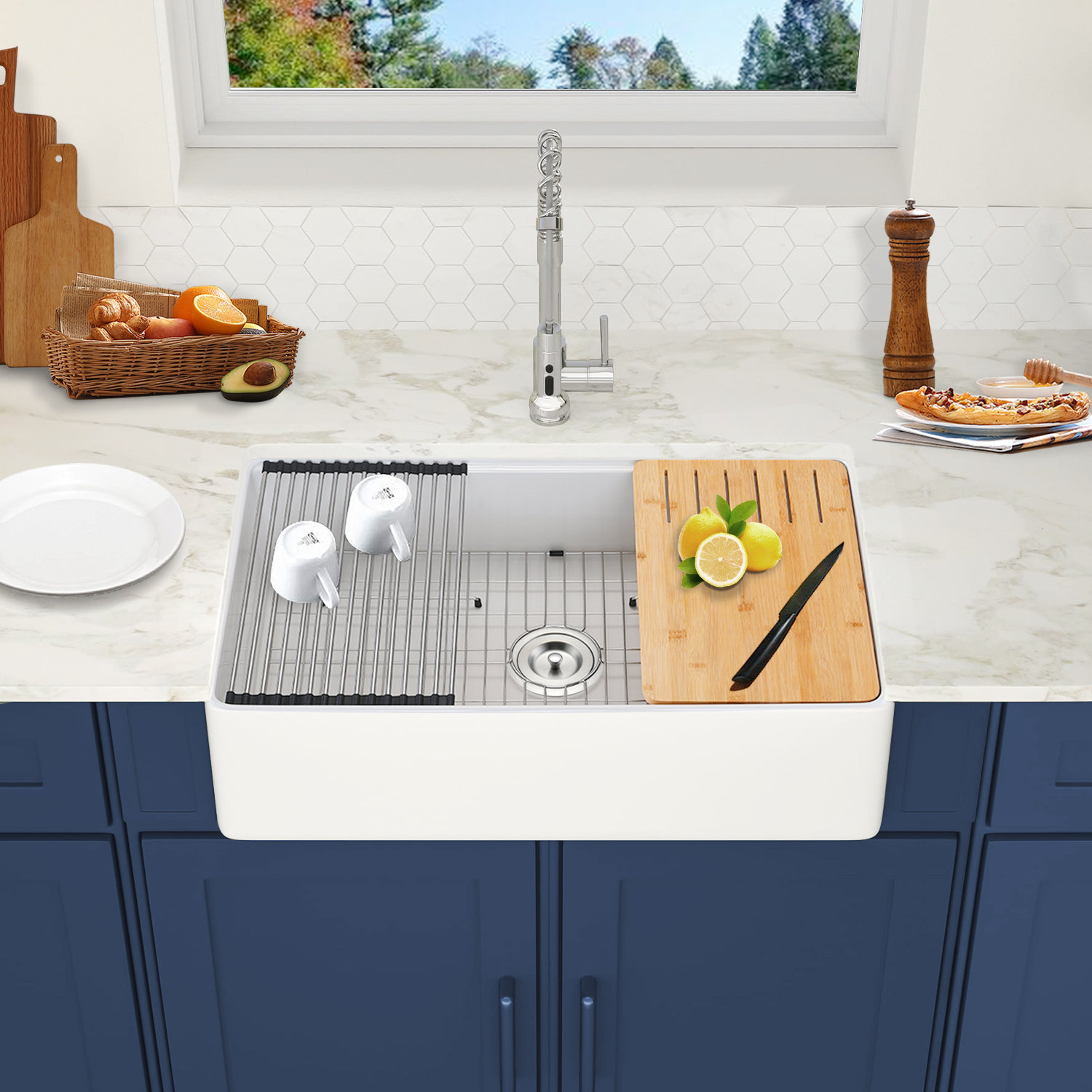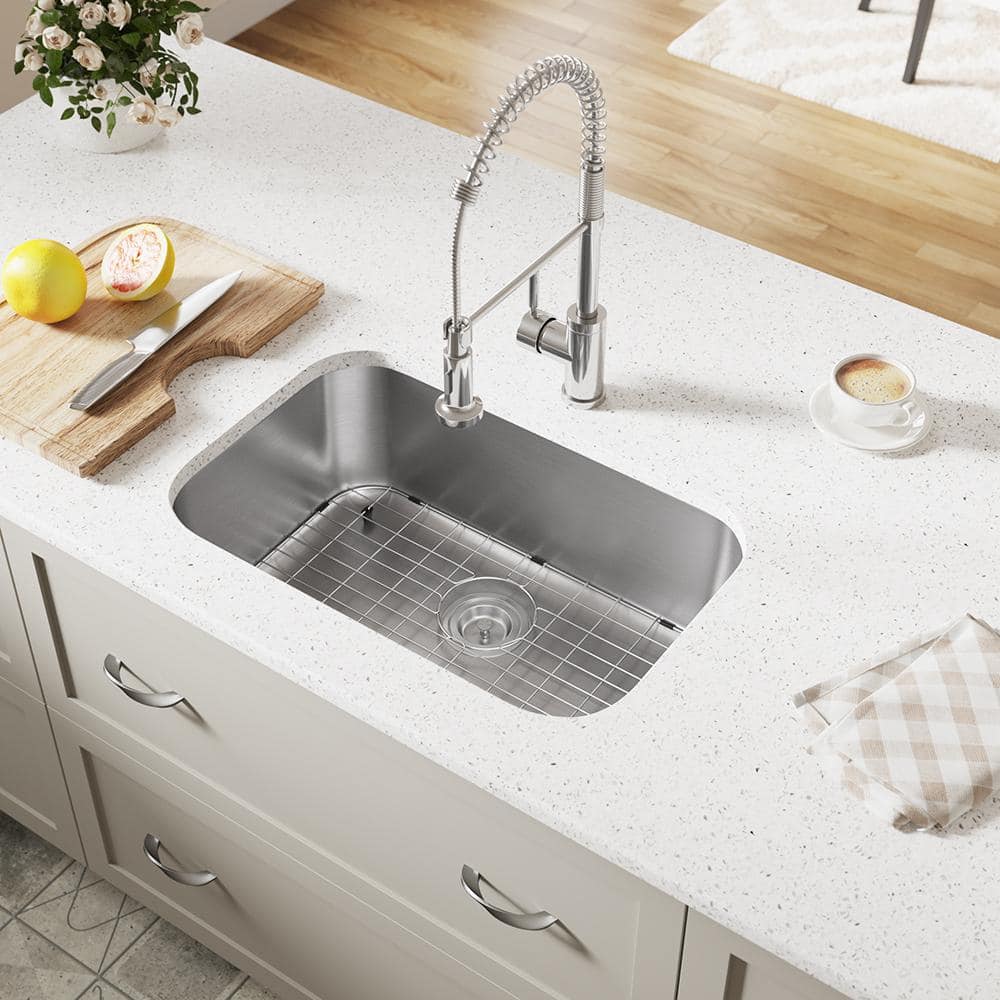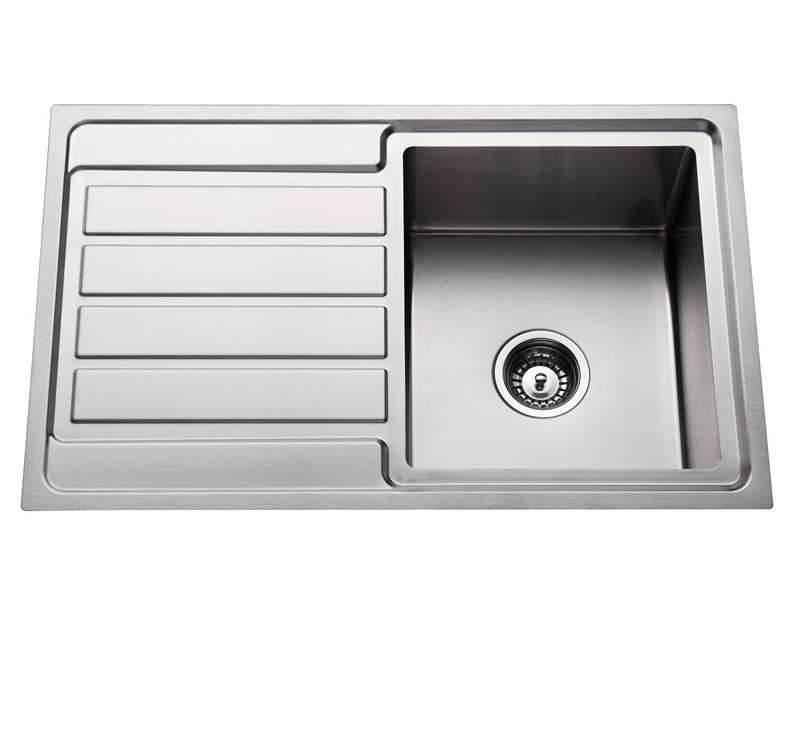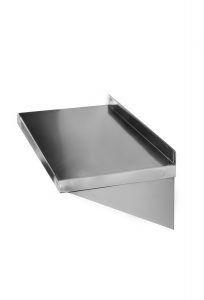In kitchen design, non-stainless steel kitchen sinks have gained popularity as versatile and visually appealing alternatives to the traditional stainless steel options. These sinks come in various materials, each offering unique characteristics that cater to different preferences and requirements. One notable material is fireclay, known for its durability and timeless aesthetic. Fireclay sinks are crafted from clay and glaze, providing a smooth, non-porous surface that is resistant to stains and scratches. Their classic, farmhouse-style appearance makes them a popular choice for both traditional and contemporary kitchens.
Another popular non-stainless steel option is cast iron. Cast iron sinks are known for their robust construction and enamel coating, which adds to their durability and resistance to chipping. These sinks often come in a variety of colors, allowing homeowners to match them with their kitchen’s color scheme. The weight of cast iron sinks can be a consideration during installation, requiring proper support to accommodate their heft.
Composite granite sinks, made from a blend of granite stone dust and acrylic resins, are also gaining traction in modern kitchens. These sinks offer a sleek and matte finish, providing a stylish alternative to the traditional glossy look. Composite granite sinks are highly resistant to scratches, stains, and heat, making them a practical choice for busy kitchens. Additionally, their composition ensures sound absorption, reducing noise when utensils or dishes come into contact with the sink.

For those seeking an eco-friendly option, bamboo sinks present a sustainable alternative. These sinks are constructed from bamboo fibers and resin, providing a unique and natural appearance. Bamboo sinks are lightweight, making them easier to install, and they offer a warm and inviting aesthetic in the kitchen. However, it’s essential to note that bamboo sinks may require more delicate care to prevent damage to their natural fibers.
Acrylic sinks, crafted from molded acrylic materials, offer a cost-effective and lightweight alternative to stainless steel. These sinks come in various shapes and sizes, catering to diverse design preferences. Acrylic sinks are resistant to stains and discoloration, making them easy to clean and maintain. Their affordability and versatility make them an attractive option for those looking to achieve a stylish look without breaking the bank.
Moving away from the conventional, copper sinks have emerged as a distinctive and elegant choice for kitchens. Copper sinks develop a unique patina over time, adding character and charm to the kitchen. Known for their antimicrobial properties, copper sinks contribute to a healthier kitchen environment by inhibiting the growth of bacteria. It’s important to note that copper sinks may require periodic maintenance to preserve their appearance and prevent excessive patina development.

Natural stone sinks, such as granite or marble, provide a luxurious and sophisticated option for kitchen design. These sinks showcase the beauty of natural materials and often feature unique patterns and veining. While natural stone sinks are visually stunning, they may require more care to prevent staining and damage from acidic substances. Regular sealing is recommended to maintain the longevity and appearance of these sinks.
One of the enduring classics in non-stainless steel sink options is porcelain. Porcelain sinks, often referred to as ceramic sinks, are revered for their timeless elegance and versatility. They come in various styles, including undermount, drop-in, and farmhouse designs. Porcelain sinks are resistant to stains, heat, and fading, making them a durable and aesthetically pleasing choice for kitchens of all styles.
In terms of design flexibility, non-stainless steel sinks allow for a broader range of color choices. While stainless steel is limited to its signature silver hue, sinks made from alternative materials can be found in an array of colors to suit diverse kitchen aesthetics. This opens up possibilities for homeowners to make a bold statement or seamlessly integrate the sink into their overall design vision.

One essential factor to consider when choosing a non-stainless steel kitchen sink is maintenance. Different materials require varied levels of care to ensure their longevity and appearance. Porcelain sinks, for example, may need periodic cleaning with non-abrasive materials, while composite granite sinks often require minimal maintenance. Understanding the specific care requirements of the chosen material is crucial for keeping the sink in optimal condition.
Non-stainless steel sinks also vary in terms of resistance to scratches and dents. While stainless steel is known for its durability against these issues, alternative materials may have different levels of resilience. For instance, fireclay sinks are resistant to scratches, while certain natural stone sinks may be more susceptible. Choosing a sink material that aligns with the intended usage and lifestyle is paramount to long-term satisfaction.
Installation considerations play a crucial role in the selection of a non-stainless steel kitchen sink. Different materials may have specific installation requirements, affecting both the ease of installation and potential modifications to existing countertops or cabinetry. Understanding the installation process and ensuring compatibility with the kitchen layout is essential to a seamless and successful sink integration.
Budget considerations are another aspect to weigh when opting for a non-stainless steel kitchen sink. While some materials may be more budget-friendly, others, such as natural stone or copper, may come with a higher price tag. Balancing the desired aesthetic, functionality, and budget constraints is key to making an informed decision that aligns with overall kitchen renovation goals.
As kitchen design trends evolve, the popularity of non-stainless steel kitchen sinks continues to grow. Homeowners are increasingly drawn to the diverse materials and styles available, allowing them to personalize their kitchen spaces. The extensive range of non-stainless steel sink options provides ample opportunities for creativity and expression while catering to various practical considerations, making them a compelling choice for those looking to elevate their kitchen design.

Kichen Sinks Stainless Steel 304 / MR Direct Undermount Stainless Steel 30 in. Single Bowl

How to Choose a Stainless Steel Sink Powell Construction

Stainless Steel Hoods – Custom Range Hoods, Copper Range Hoods, Luxury Kitchen Design

Pin on Stainless Steel Sink commercial

Economy Stainless Steel Commercial Sink – 1000mm – Cater Kitchen

Related Posts:
- Copper Double Kitchen Sink
- Kitchen Sink PVC Drain Parts
- Vintage Cast Iron Kitchen Sink With Drainboard
- What To Use To Unclog A Kitchen Sink
- Unique Kitchen Sink Ideas
- Corner Kitchen Sink Base Cabinet Dimensions
- Double Bowl Porcelain Kitchen Sinks
- Leak Under Kitchen Sink Drain
- Stainless Steel Single Bowl Apron Farmhouse Kitchen Sink
- Premium Kitchen Sinks